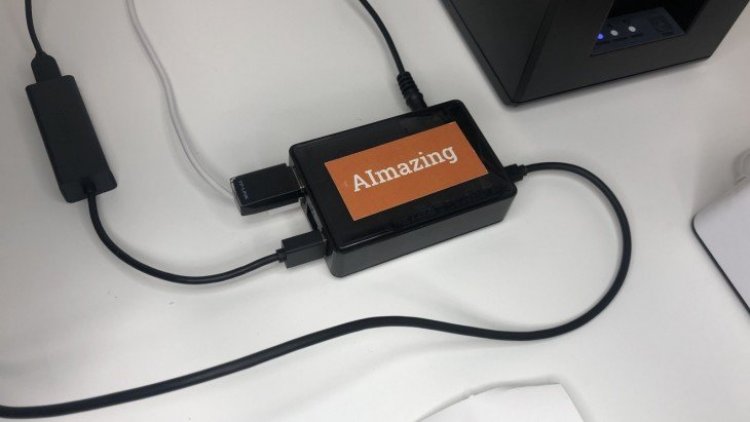When you purchase products online, e-commerce platforms have access to every single transaction you make, and those made by millions of other consumers. The data available ranges from what you bought, how many units, at what time, with any promotion, and how you paid. This enables e-commerce players to accurately offer consumers what they need and make critical business decisions everyday. However, offline retailers do not have access to such data which is key to their transformation.
Singapore retail-tech company, Aimazing, with its retail data platform, is enabling mall operators to leverage technology to capture, structure and sort real-time retail transactions. The access to significant amounts of mall management data such as consumer purchasing behavior, sales, and performance can track how customers shop and why.
Market research reports conclude that offline retail represents 91% of the total retail market in ASEAN and will be the dominant channel of retail sales in the foreseeable future. As mall operators are unable to track daily sales or provide retail rebates and tenant support in response to Covid-19 events and lockdowns, valid real-time data and important insights are needed to make business decisions on a daily basis
Aggregating and analysing physical retail transactions presents a challenge and opportunity. Aimazing solutions are built to allow mall management and retailers achieve data visibility through custom development, mall marketing, in-mall royalty, benchmarking and gross turnover (GTO) solution.
Solution reads and analyses transaction data from receipts
Aimazing aims to change that with a patented solution that captures and analyses offline transaction sale data within shopping malls to better equip mall owners and retail businesses with insights into making better-informed business decisions. Aimazing does this while solving pain points of not needing to integrate with any of the several POS systems within the mall, and without millions of dollars of upfront investment for hardware and setup, instead going for a subscription model which makes it easy to adopt and make it cashflow efficient.
Aimazing’s hardware solution in the form of a tiny black box can be plugged into the Point of Sale (POS) systems of retail businesses. This technology used is similar to the image recognition that Google Translate uses. Data from the receipts are then analysed and organised through a machine learning engine and directly uploaded to the cloud where mall operators have direct and real-time access.
“We aim to enable shopping malls to support their retail tenants in making decisions by understanding data such as peak shopping periods in the malls, average basket size, best selling items and how various categories of merchants from F&B to clothing and retail are performing in real-time. This data has already been widely available to e-commerce marketplaces but not to physical retailers and mall operators. We aim to bring physical marketplaces to a level playing-field with this data visibility, as before this they were batting blind,” said Jun Ting, Chief Executive Officer of Aimazing
Currently, Aimazing processes three million data points a month from 1,000+ devices in the region and there is a pipeline of 10,000 devices to be implemented in the next 12 months. Successful pilot projects include a completed project with Hong Leong Holdings through Enterprise Singapore’s Open Innovation Challenge Programme, and other projects live with malls in Singapore, Malaysia and The Philippines.
How Aimazing came about
Prior to embarking on this mission to organise the world’s offline retail data, Jun Ting was a serial entrepreneur who was part of the mobile wallet space venture – but he and his team were met with multiple roadblocks and obstacles along the way
This changed when a team from Facebook contacted Jun Ting in 2018 to enquire about the solution’s offline transactional data collection capabilities. It was then Jun Ting realised the gaping hole in the market for a solution that can aggregate and make sense of consumer data that happens offline.
“My team was trying to figure out how we could do this. We then started to reach out to all the POS companies in Singapore to learn how this data was currently being collected and analysed. This process made us realise that every POS company had a different system and there wasn’t a unified way that we could seamlessly integrate and offer a clear data analysis to retail businesses and mall owners,” added Jun.
This led Jun Ting’s team through more than two years of R&D in developing the solution that it has today.
While most startups have sought to raise as much venture capital as possible, Aimazing aspired to do things differently “We believe in being efficient with our resources and bringing along strategic, committed and smart individual investors with us. These include Chong Chuan Neo, former Chairman of Accenture China and Ng Eng Ho, Former MD of Keppel T&T. Our investors and advisors have given us invaluable insight into the market to better understand and solve problems on the ground.”
However, technology and data alone doesn’t solve the problem. “A lot of the challenges today are people driven. Even more so during trying times, it is important that leaders in the industry seek to work together, provide data transparency, and find the win-win-win. Aimazing plays exactly that role, to provide a trusted, neutral and factual platform for leaders to make mission-critical and time-sensitive decisions in their day to day,” says Jun Ting.
For more information, visit Aimazing website and their latest podcast ‘The Future of Retail Asia’.

















